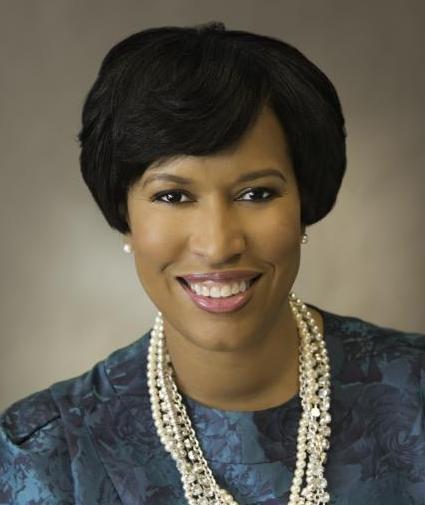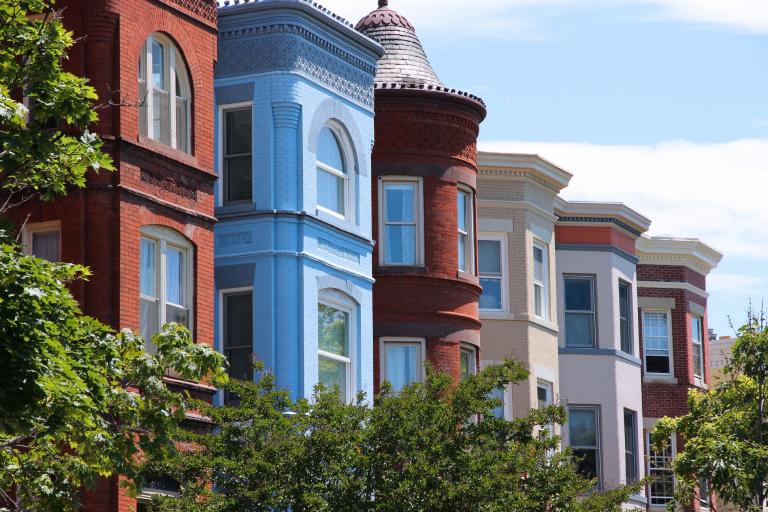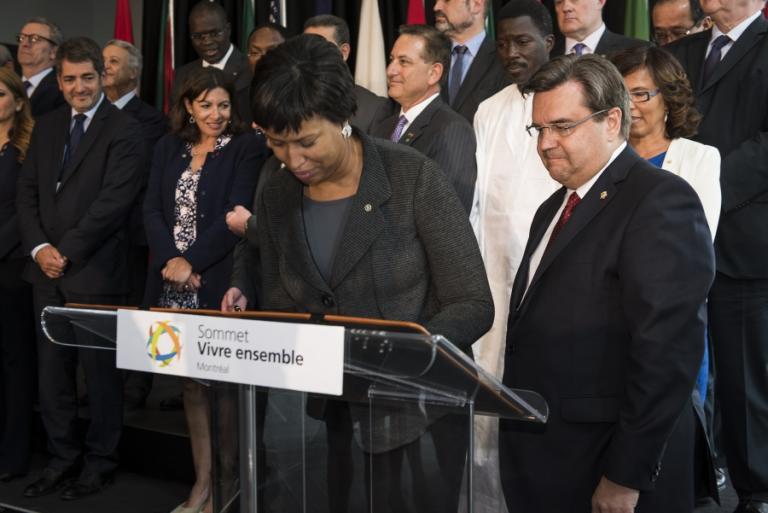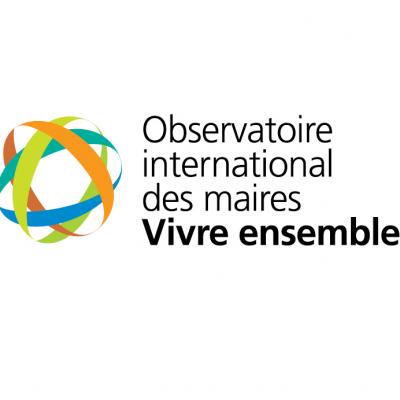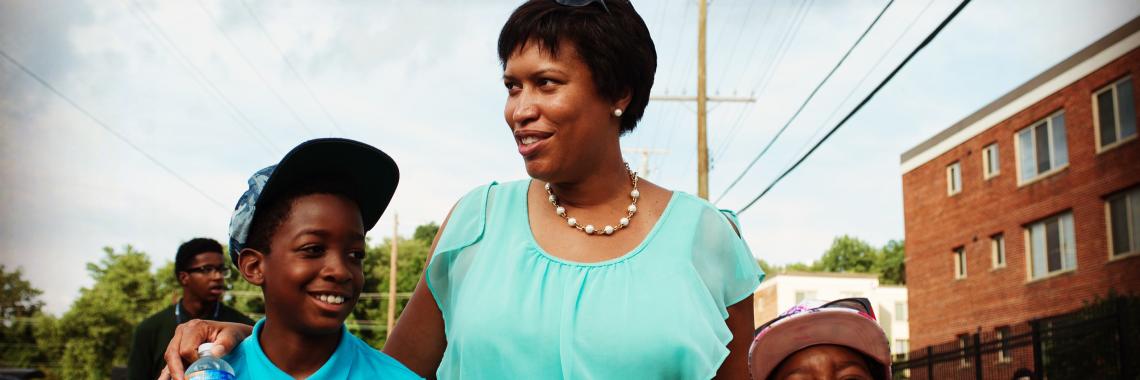
Interview: Muriel Bowser, Mayor of Washington, DC
A native of the district of Columbia, Muriel Elizabeth Bowser began her political career as a member of the Advisory Neigborhood Commission (ANC). Since 2015, she has served as Washington DC's seventh elected Mayor. In this interview, she talks about the opportunities and assets of the District, as well as the values driving the capital city of the United States.
As a mayor of a city with residents from all kind of backgrounds, what is your vision of "Living Together" and what are the main challenges that Washington, D.C. faces in terms of social cohesiveness and inclusion?
Washington, DC’s diversity is a core part of who we are as a city. To me, “living together” means embracing and celebrating our differences. In Washington, DC we have visitors and residents who come to us from all over the world, and we are also home to thousands of native Washingtonians whose families have lived in DC for generations. All of these people contribute equally to our vibrancy and culture. Our city is made up of over 54 unique neighborhoods and in each one we recognize and celebrate DC’s many cultures through festivals, food and education.
Right now, one of the challenges we face is ensuring that people from all backgrounds and every part of the city benefit from Washington, DC’s growth and prosperity. As our economy grows, we want all our residents to prosper.
What is your approach to respond to these challenges and what specific initiatives or measures have you implemented?
To ensure that people from across the city can take part in our prosperity, I have made creating and preserving affordable housing a cornerstone of my administration. Each year, my administration has invested $100 million into our Housing Production Trust Fund – more than any other city in the United States. These investments are important, and they are worth every penny.
In addition, we work every day to create more pathways to the middle class by investing in education, getting residents connected to employment programs, and creating more opportunities for residents to open and expand small businesses.
As a decision-making centre and the nation's capital, Washington, D.C. is also home to a number of major institutions. What are the specific challenges and advantages of this position in terms of service delivery to residents?
The latest estimates from the U.S. Census Bureau shows that Washington, DC has reached a total population of 681,170, a figure not seen since the 1970s. Our growth in population shows that Washington, DC is an attractive place to live, work and start a family. The District’s investments in neighborhoods – from affordable housing, public infrastructure, and transportation to public schools, parks, retail, and the arts – are all making DC an inclusive city that is a highly desirable place to call home. Washington, DC will continue efforts planning for an inclusive city where residents are able to be part of the opportunities that come from living in a growing and dynamic District.
In 2015, you participated in the "Living Together Summit," the first international meeting where mayors can discuss new challenges related to managing diversity and preserving social cohesiveness in their cities, and that led to the creation of the Observatory. How do you think cities, both in the U.S. and internationally, can work together to advance the "Living Together" agenda and make cities more inclusive?
When a lot of people think about government they think about government at the state or federal level. However, cities have a tremendous opportunity to make a positive impact on the lives of people all over the world. At the city level, we have a unique opportunity to innovate and try out bold, new ideas.
And when we find something that works, the most important thing we can do is share our work with other cities. I recently traveled to Mexico City to share some of the great work that Washington, DC is doing to make our city more sustainable. While there, I learned what mayors and leaders from around the world are doing to mitigate climate change in their cities. This type of sharing of ideas is so valuable, and we need to do it often and for a range of issues – which is why being part of the Observatory is so valuable. There are a lot of bright minds out there and a lot of cities doing great work – let’s take those great ideas and implement them in other places.
As a female mayor, what kind of challenges do you face and how do you think your leadership style can contribute to change attitudes and behaviours?
I ran for mayor because I knew I had something to offer Washington, DC. At the time, our city needed a fresh start and a new type of leadership and I knew that I could provide those things. Too often, women try to wait for the perfect time or the perfect issue to run, but sometimes you just have to know what you can do and make the decision to get involved. That’s what I did, and that’s what I encourage other women to do.
